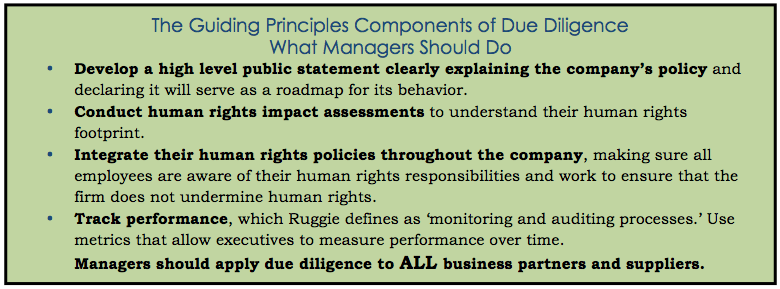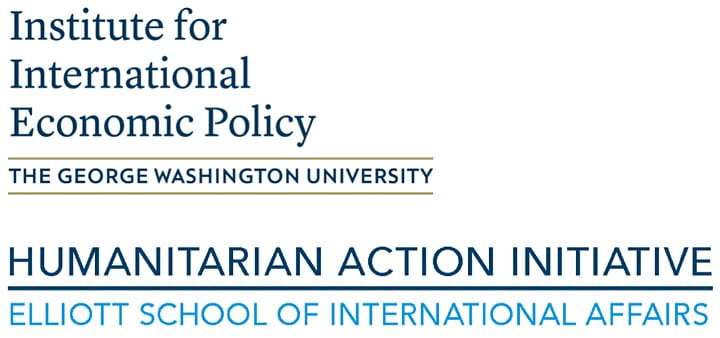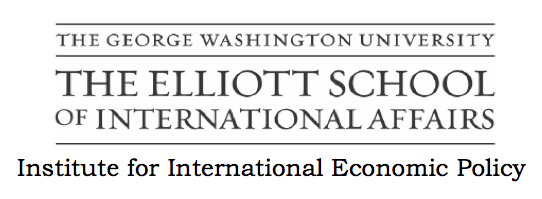How Policy Makers Can Help Firms Get Rights Right
Susan Ariel Aaronson
Background: Companies have a responsibility to respect and remedy
This policy brief delineates how governments can help firms implement the Guiding Principles on Business and Human Rights. Human rights are basic rights and freedoms that all people are entitled to regardless of nationality, sex, national or ethnic origin, race, religion, language, or other status. Human rights include civil and political rights, such as freedom of association, freedom of expression, and the right to life, as well as social, cultural and economic rights, such as the right to food, the right to work and the right to education. For some 63 years, the international human rights regime – the Universal Declaration of Human Rights and its associated covenants – has guided policymakers, academics, and activists as to the human rights responsibilities of states.
However, this human rights system had two major gaps. First, it did not clarify what UN member states should do when a UN member state did not shield its people from crimes against humanity such as genocide. Secondly, the international human rights regime did not delineate specific human rights responsibilities for business. Activists, policymakers, and executives have increasingly called for such clarity because many firms trade, invest, and produce in nations where the rule of law is weak and policymakers are unwilling or unable to meet their human rights responsibilities.
In the last 15 years, the global community has worked to bridge these gaps. In 2001, one hundred and ninety two members of the UN decided they had a “responsibility to protect;” they agreed to the “protect, respect, and remedy” framework for violations of human rights among UN member states. Specifically, they agreed that they had a responsibility to protect, ensure respect, and develop remedies in the face of crimes against humanity. In 2005, UN Secretary General Kofi Annan appointed Harvard Professor John Ruggie to be the Special Representative of the Secretary General on the issue of human rights and transnational corporations. In 2008, Ruggie and his team issued Protect, respect and remedy: A framework for business and human rights. This framework built on the state duty to protect citizens from human rights abuses. It also stressed the corporate responsibility to respect human rights, and the need for corporations as well as states to provide access to effective remedies when rights are violated. The UN Human Rights Council (UNHRC) unanimously endorsed Protect, respect and remedy in 2008, and extended Ruggie’s mandate so that he could develop suggestions on how firms and governments could implement this framework. On 22 November 2010, Ruggie released a draft version of Guiding Principles for the implementation of the United Nations ‘Protect, respect and remedy’ framework. The draftwas open for public consultation via an online forum (http://www.srsgconsultation.org) until 31 January 2011. Ruggie released a final version that incorporated these comments, the ‘Guiding Principles on business and human rights’, on 21 March 2011. The 47 members of the UNHRC formally approved the Guiding Principles (GPs) on June 16, 2011.
With that approval, the GPs became a key element of the international human rights regime. They establish a common set of rules regarding how to interpret business behavior relative to international human rights law. But the GPs are recommendations by states to business – they are not binding obligations.
Due Diligence

The Guiding Principles make it clear that firms must practice due diligence. When firms operate abroad, they confront a world with many different governments, languages, cultures, and expectations for the private sector. Firms operating overseas are ambassadors of internationally accepted values such as norms of human rights. These companies can also create human rights risk if they fail to respect human rights. These risks may include public exposure of their practices on the web; public, employee, and investor boycotts; postponement of projects; or litigation. In a 2011 speech Ruggie noted, “One company… experienced a $6.5 billion ‘value erosion’ over a two-year period due to non-technical risks, including community opposition and delays in regulatory approvals. Indeed, in some industries such stakeholder-related risks constitute the single largest category of non-technical risk companies face, yet many companies do not adequately measure or manage them.” Hence, the Guiding Principles suggest that firms should adopt four elements of due diligence:
 GAPS in the Guiding Principles
GAPS in the Guiding Principles
The Guiding Principles are a good start, but this framework has several gaps that can affect whether and how governments prod their firms to implement the GPs. Some human rights, such as access to education, water, affordable healthcare, et cetera, are essentially services provided by or regulated by governments. Citizens, including corporate citizens, provide the funds for these services through taxes and user fees. However, the Guiding Principles say little about the responsibilities of business to pay taxes to their home and host states. Moreover, when they prod firms to implement the Guiding Principles, nations are supposed to include all human rights delineated in the Universal Declaration of Human Rights. But some countries, including the United States (U.S.), have not signed onto all human rights covenants associated with the Universal Declaration. Under U.S. law, U.S. citizens do not have the right to a sustainable standard of living including food, housing or medical care. U.S. Deputy Assistant Secretary of State for Democracy, Human Rights, and Labor Daniel Baer stated, “We also have a solemn imperative as governments to provide for and improve the well-being of our populations, even where our obligations under international law do not require it.” U.S. State Department officials have not clarified if they will expect U.S. companies to advance these rights in the U.S. and abroad. Thus, U.S. policymakers will need to decide if they will selectively encourage adherence to the GPs or be fully supportive. Other countries will need to make similar decisions.
Moreover, the Guiding Principles call on companies to monitor their performance (to do human rights impact assessments). However, the principles do not delineate how to do so or what indicators to use. Firms will need to rely on metrics (means or indicators to understand social phenomena) so that they can monitor their performance over time. Such metrics can help firms link the conceptual discussion about human rights to actual implementation. However, for metrics to be useful, they must be comparable across companies and accepted by stakeholders as trustworthy. Many human rights organizations do not see these metrics as accurately and effectively conveying human rights conditions. However, scholars, policymakers and a growing number of activists rely on two sets of statistics: the CIRI Human Rights Dataset (used by the World Bank) and the New School/University of Connecticut Economic and Social Rights Empowerment Initiative. The George Washington University (USA) recently organized a conference on the utility of human rights and governance metrics. In preparing for that conference, we did a preliminary survey of firms and we could not identify any firm that used any human rights metric to evaluate its performance. Clearly, policymakers will need to work with scholars, activists, and executives to find common ground on metrics and on strategies for evaluation.
Finally, Ruggie did not receive a mandate to build a public case for business to protect human rights. Although there is mounting global public concern about the growing power of global business, in general, the public has been uninformed and uninvolved in this discussion. At the same time, many activists and other international organizations view the Guiding Principles as inadequate. Some observers have even called for the creation of binding legal mechanisms that mandate oversight of corporations. Hence, as governments, activists, and firms work to implement the Guiding Principles, they should begin by explaining to the public why these principles are necessary, useful, and in the public interest.
De Minimus Uptake of the Guiding Principles
As noted above, the GPs are voluntary recommendations to business. As of December 2011, less than 1% of the world’s some 80,000 multinationals have actually adopted human rights policies, performed impact assessments or tracked performance, devised means to ensure that they do not undermine human rights, or developed means to remedy human rights problems.
Moreover, companies with human rights policies may still indirectly undermine human rights. Many multinationals operate globally through subsidiaries and indirect suppliers; many of their subsidiaries and suppliers are incorporated locally and are corporate citizens of the host country. These same firms often have thousands of suppliers. The first empirical study of corporate efforts to curb human rights abuses found that firms with human rights policies are less likely to directly commit human rights abuses, but some of these same firms also are learning how to “outsource abuses” to third parties. Apple is an example of this phenomenon; but it is not the only example. The New York Times reports that Apple claims it relies on Chinese suppliers to assemble its iPhone because its Chinese suppliers provide a highly skilled flexible workforce willing to work twelve hours a day. Apple acknowledges that by subcontracting this work it does not have to meet Western demands for salary, hours and work conditions. The Times also reports that the suppliers require these workers to toil in harsh conditions and Apple has done little to consistently hold its suppliers accountable for these conditions. Meanwhile, the Chinese government does not consistently enforce its labor laws, and many Chinese workers are not aware of their rights under these laws.
We believe there are several reasons why so few firms have adopted the GPs. First, human rights are relatively new on the business agenda. Executives will need time to learn how to effectively incorporate human rights into policies and behaviour. Second, those companies that do not have policies or procedures may not perceive that their firm is at risk for directly or indirectly violating human rights or they may not be aware of this initiative. Third, implementing the GPs will be expensive and time consuming. Many executives are not yet convinced they need to do more than they are already doing. Moreover, the few firms that are acting to implement the GPs so far are acting in a piecemeal, ad hoc manner. They tend to have few staff with direct human rights responsibility or expertise. Activists and policymakers can continue to pressure these firms – through shareholder resolutions, court cases, legislation and regulation, and naming and shaming. Ultimately, it is up to the members of the UN to prod their home firms to adopt human rights due diligence.

 Recommendations to Governments that want to Encourage Implementation of the Guiding Principles
Recommendations to Governments that want to Encourage Implementation of the Guiding Principles
1. Policymakers should make human rights and business respect for human rights a top priority
2. Educate business leaders on how to implement the Guiding Principles
First, policymakers should make it clear that they understand that every firm is different, and the human rights that a textile firm may affect (for example labor rights and access to water) may be different from those that an Internet company may affect (such as freedom of speech or privacy rights). However, they should stress that all firms have the same responsibilities to respect and remedy human rights.
Government officials should clearly delineate their human rights expectations for firms and provide assistance to managers in implementing human rights impact assessments, grievance mechanisms, and other aspects of due diligence. Policymakers should also stress that firms are responsible for the behaviour of their suppliers, but they recognize that many firms have significant leverage to change business practices only with their direct (tier one) suppliers. In particular, policymakers should make a special effort to engage with small and medium sized firms and new exporters. These firms will have less will and fewer resources to implement the Guiding Principles. The UN Global Compact has tools to help. It has developed a free Web-accessible learning platform that policymakers could begin with and build upon. It also sponsors free webinars – one on the Guiding Principles is scheduled for February 18, 2012.
3. Foster international collaboration
Government officials should collaborate to encourage adoption of the GPs. In 2011, members of the OECD revised a longstanding soft-law initiative (the OECD Guidelines – voluntary recommendations for business behaviour) to include the Guiding Principles. The British government is partnering with the government of Colombia to disseminate information about the Guiding Principles and to encourage implementation. Policymakers could follow the UK example and build similar partnerships with their allies and trade partners.
4. Work towards policy coherence between human rights and other policy objectives
Government officials should do their own due diligence and examine the signals domestic laws and regulations send to market actors about protecting human rights. If trade, investment, tax, and corporate governance rules send confusing signals, policymakers should find ways to foster greater coherence. One way to ensure such coherence is to put language referencing the Guiding Principles into national preferential trade programs for developing countries and in free trade agreements. The EU and the U.S. government use their preferential trade programs to prod beneficiaries to implement and enforce some human rights. In addition, many free trade agreements (including those of Canada, the U.S. and the EU) already have language on corporate social responsibility – such language is hortatory, but could be useful in promulgating the Guiding Principles. A recent World Bank study found that these provisions contribute to the definition, recognition and internationalization of human rights norms.
5. Rethink institutional structures for making policies and find a channel for human rights
First, government officials should develop a regular channel for human rights concerns to enter into the policymaking process. Trade policy provides an example of how policymakers might implement reforms. The U.S. and the EU already examine the labor and environmental impacts of their trade agreements; these nations could broaden that analysis to human rights in general. Ever so gradually, other nations may adopt similar strategies. Such reforms may slow policy, but over time national policies will be more coherent – supportive of both economic and human rights objectives. Such coherence is in the citizens’ and taxpayers’ interest.
Secondly, governments should develop institutional structures that foster collaboration among and within agencies on human rights. The U.S. provides an example of how hard it is to foster such collaboration. The Bureau of Democracy, Human Rights, and Labor has responsibility for human rights in the Department of State, but State’s Economic Bureau has responsibility for international business. Thus, two staffs share responsibility for implementing the GPs. Moreover, the State Department will need to work with the Commerce Department to educate U.S. businesses about the GPs and help firms adopt them. These two agencies will also need to coordinate with other U.S. agencies such as the U.S. Trade Representative (USTR) and the Securities and Exchange Commission (SEC) to devise coherent and effective policies. In sum, unless senior U.S. government officials make it clear that coherence is important and essential to implementation, U.S. policy will be less effective and few managers will take the Guiding Principles seriously.
6. Rethink corporate governance rules and encourage market actors to think long term
Policymakers should examine the signals the corporate governance rules send to market actors. Some countries view sustainability issues, including strikes, community access to water, consumer privacy data etc…as material information – information stakeholders should know because they could reveal that their investments may be at risk. However, in a 2009 survey, the Ruggie team found virtually no jurisdiction that explicitly regulates corporations on the issue of human rights through corporate and securities laws. While nations may be reluctant to add to the corporate governance burden at this time, they should redefine their definition of materiality to include human rights risk. In the U.S., the SEC has already introduced recommendations that hacking can pose a risk to firms. Hacking can also violate an individual’s right to privacy. The Dodd-Frank legislation also required firms to report on whether their supply chain included conflict minerals (the EU is considering similar legislation). Clearly, some policymakers are moving in this direction. In addition, policymakers should consider mandating pension funds to report on the social and environmental consequences of their investments. This strategy could stimulate markets to move towards long-term, responsible thinking.
7. Use taxpayer funded incentives such as export credit guarantees and procurement policies
Given the slow take-up of the Guiding Principles, policymakers will have to develop incentives to encourage more firms to implement these new principles. They can begin with their export credit programs. Most industrialized nations have export credit agencies that offer finance and insurance to private firms operating internationally. In 2005, the OECD estimated that its members provided the private sector with some $125 billion in fund – an amount that has only increased since the downturn, given public pressure to create jobs. Policymakers could require export credit agencies to do their due diligence and examine the human rights impact of any proposed loan or guarantee. In addition, firms seeking such assistance should also be required to implement the Guiding Principles.
Government officials should also focus on their procurement policies. When a government purchases goods and services, it does so for its citizens and thus, these purchases should reflect local norms and expectations. Government procurement activities comprise some 10-30% of the gross national product (GNP) in many states. Because this is such a large share of GNP, coordinated government policies could have a major effect on the practices of many companies.
Public procurement rules establish specific contract award procedures to ensure that public purchases are made in a transparent and fair manner and provide the best value for taxpayers’ money. The international system of rules governing trade (the World Trade Organization -WTO) which regulates trade among 155 member states requires governments to use procurement policies in a manner that does not distort trade among WTO members.
In recent years, states and international institutions have tailored their procurement regulations to address issues of human rights. U.S. President William Clinton banned federal agencies from purchasing goods made with exploitive child labor. The U.S. Department of Labor publishes a list of such goods and the countries where they are manufactured. The EC is currently revising its procurement policies and has prepared several documents examining selective procurement to achieve social and environmental goals. Under Convention 94, the International Labor Organization (ILO) requires its suppliers to adhere to core labor standards. UNICEF will not contract with suppliers that use child labor or those that manufacture land mines or components for land mines. The United Nations Supplier Code of Conduct (and similar Codes established by other UN organizations) is built on the norms of the UN Global Compact initiative, which includes human rights, labor rights, environmental, and anticorruption provisions. Suppliers are expected to comply with the Code of Conduct in their dealings with the UN Secretariat.
Policymakers could require firms seeking government contracts to implement the Guiding Principles. Although procurement policies are domestic policies, the OECD could coordinate a multilateral meeting where OECD member states (and other like-minded nations) would jointly announce procurement incentives to firms that implement the Guiding Principles. In so doing, the 38 member OECD could be seen as enhancing cost efficiencies as well as an environment supportive of human rights. Such action might also send a mighty market signal to corporate executives.
To view endnotes, please download the full PDF document.
 Marko Klašnja is an assistant professor at Georgetown University, with a joint appointment in the Edmund A. Walsh School of Foreign Service and the Government Department. He holds a PhD in political science (NYU, 2015). In 2014-2015, Marko was a visiting scholar at the Center for the Study of Democratic Politics, Princeton. His research focuses on democratic accountability and the inequalities in political representation, with a special focus on the electoral fortunes of corrupt politicians, the role of parties in democratic accountability, the causes and consequences of politicians’ wealth, and the political attitudes and preferences of wealthy individuals. At Georgetown, Marko teaches courses on comparative political economy and quantitative research methods.
Marko Klašnja is an assistant professor at Georgetown University, with a joint appointment in the Edmund A. Walsh School of Foreign Service and the Government Department. He holds a PhD in political science (NYU, 2015). In 2014-2015, Marko was a visiting scholar at the Center for the Study of Democratic Politics, Princeton. His research focuses on democratic accountability and the inequalities in political representation, with a special focus on the electoral fortunes of corrupt politicians, the role of parties in democratic accountability, the causes and consequences of politicians’ wealth, and the political attitudes and preferences of wealthy individuals. At Georgetown, Marko teaches courses on comparative political economy and quantitative research methods. Nina Eichacker is an Assistant Professor of Economics at the University of Rhode Island. She earned her PhD at the University of Massachusetts, Amherst. Her work synthesizes Post Keynesian economic theory with International Political Economy to better understand the effects of globalization, financial liberalization, and public intervention in neoliberalism and beyond. Her teaching interests lie in critical macrofinance, money and banking, and the economics of globalization.
Nina Eichacker is an Assistant Professor of Economics at the University of Rhode Island. She earned her PhD at the University of Massachusetts, Amherst. Her work synthesizes Post Keynesian economic theory with International Political Economy to better understand the effects of globalization, financial liberalization, and public intervention in neoliberalism and beyond. Her teaching interests lie in critical macrofinance, money and banking, and the economics of globalization. Tim Shenk is an assistant professor in the department of history at GW and co-editor of Dissent. He is currently working on two books. The first, based on his dissertation and under contract with Princeton University Press, examines the emergence of the idea of “the economy” in the United States during the twentieth century. The second explores the intellectual history of the American political elite from the writing of the Constitution down to the present. Tentatively titled The Golden Line: The People, The Powerful, and the American Political Tradition, it is under contract with Farrar, Straus, & Giroux.
Tim Shenk is an assistant professor in the department of history at GW and co-editor of Dissent. He is currently working on two books. The first, based on his dissertation and under contract with Princeton University Press, examines the emergence of the idea of “the economy” in the United States during the twentieth century. The second explores the intellectual history of the American political elite from the writing of the Constitution down to the present. Tentatively titled The Golden Line: The People, The Powerful, and the American Political Tradition, it is under contract with Farrar, Straus, & Giroux.














